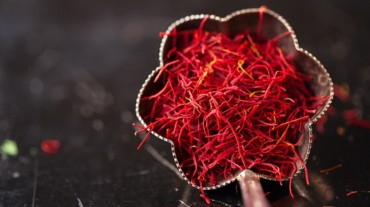Menopause is a natural and important stage in a woman’s life, marking the end of her reproductive years. During this transition, hormonal changes can lead to a variety of physical and emotional symptoms. By incorporating the magic of Ayurveda treatments into their lifestyle, women can effectively manage the symptoms of menopause and promote overall well-being. Let us look at some Ayurvedic remedies for menopause, recommended by an expert, to help women deal with the symptoms of menopause.
symptoms of menopause
Menopause is a natural physiological transition that signals the end of a woman’s reproductive phase. As the ovaries gradually produce fewer hormones, significant hormonal changes occur in the body, triggering a range of menopausal symptoms. Some common symptoms include:
* Hot flashes, which are a sudden and intense sensation of heat, often accompanied by sweating and reddened skin.
* Night sweats, disturbances in sleep patterns and mood swings are also common during this phase.
* Irregular menstrual cycles and eventually complete cessation of menstruation.
* Decreased estrogen levels can cause vaginal dryness and discomfort during intercourse.
* Cognitive changes, such as memory loss and difficulty concentrating, may be experienced by some women.
* Weight gain and changes in hair and skin texture.

Also Read: Eating Milk Chocolate Every Day Can Keep Your Mother’s Post-Menopausal Symptoms At bay
Ayurvedic Remedy for Menopause
As Health Shots contacted Ayurvedic expert Dr. Annu Prasad, he shared with us ten Ayurvedic herbs or blends that may help get some relief from the symptoms of menopause.
1. Ashwagandha (Withania somnifera)
Ashwagandha, also known as Indian ginseng or winter cherry, is a potent adaptogenic (stress-relieving) herb with rejuvenating properties. This can help reduce stress and anxiety, which are often prevalent during this phase. “Consuming ashwagandha in powdered form or as a supplement may support the body’s ability to cope with hormonal changes, promoting emotional balance,” says Dr. Prasad.
2. Asparagus (Asparagus racemosus)
Shatavari is a revered herb for women’s health, especially during menopause. It helps in controlling hormonal imbalance and supports the female reproductive system. Including asparagus in powder or capsule form in your diet may help reduce the symptoms of menopause.
3. Brahmi (Bacopa monnieri)
According to Dr. Prasad, Brahmi is an excellent herb for enhancing cognitive function and memory. During menopause, cognitive changes can occur, and adding brahmi to a daily routine may help maintain mental clarity and focus.

4. Licorice (Glycyrrhiza glabra)
Licorice has anti-inflammatory properties that can reduce hot flashes, a common symptom of menopause. However, it should be used with caution, especially by people with high blood pressure, as excessive consumption can lead to a potassium imbalance.
5. Triphala
Triphala, a combination of three fruits – amla, haritaki and bibhitaki – aids digestion and promotes detoxification. Dr. Prasad says, “Since menopause is a time when the body goes through significant changes, including Triphala can help maintain digestive health.”
Also Read: I Had Triphala Every Day For Two Weeks And You Won’t Believe What Happened
6. Aloe vera
The cooling and soothing properties of aloe vera make it beneficial for managing hot flashes and skin irritation during menopause. Including aloe vera gel or juice in the diet can provide relief from these uncomfortable symptoms.
7. Saffron
Saffron or kesar, known for its mood-enhancing properties, can be a valuable ally during menopause, helping to deal with mood swings and feelings of depression. Consuming saffron in small amounts can elevate mood and promote emotional well-being.

8. Meditation and Yoga
Ayurveda emphasizes the importance of mental and emotional well-being during menopause. Practicing meditation and yoga during this phase can reduce stress, improve sleep, and improve overall quality of life. Breathing exercises and mindfulness exercises may also be beneficial.
9. Oil Massage
Regular massage with warm sesame oil or coconut oil can help reduce dryness in the skin and joints, providing comfort and nourishment during menopause.
10. Dietary Changes
It is important to adopt a balanced and nutritious diet during menopause. Including plenty of fresh fruits, vegetables, whole grains and healthy fats in your diet helps with overall health and well-being. On the other hand, avoiding spicy, fried and processed foods can help prevent menopausal symptoms from getting worse.
As always, it is important to consult an Ayurvedic practitioner before incorporating any new remedy into your routine. By adopting these Ayurvedic practices, women can manage the symptoms of menopause and embrace this transformational phase of life.

Source link: sensationsix.com Source link: www.healthshots.com

Comments
Post a Comment